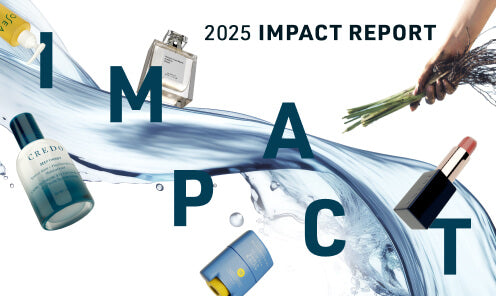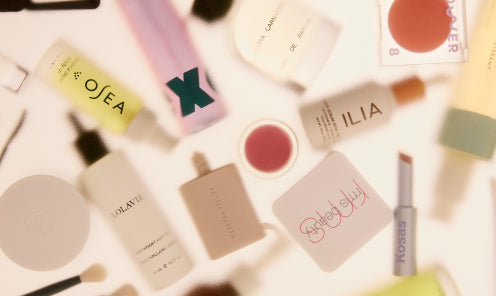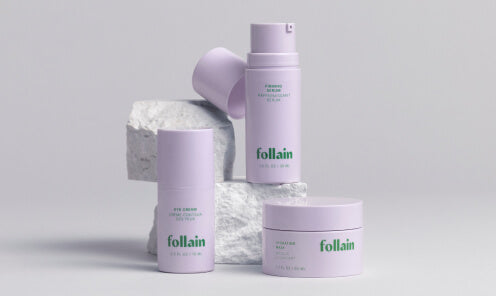Guest Blog Post by Dr Elsa Jungman
Happy World Microbiome Day! Each year in June we take a day to celebrate the trillions of diligent microbes who make our planet work. From plants, to animals, to our bodies and skin, we rely on our microbiomes to perform, even when we don't see them.
Your body is home to a multitude of different microbiomes from your gut to your skin. We are passionate about the skin microbiome specifically, and we can’t wait to share why it’s so important with you all.
So, What is the Microbiome?
The microbiome is the invisible layer of bacteria, fungi and viruses that live on the surface of your skin. It is an entire universe with trillions of residents, calling your skin home. Don’t worry it's less scary than it might sound. This ecosystem works in epic cohesion to protect your body from outside irritants and act as the first line of defense against outside viruses.
All the microorganisms living on our skin are in constant conversation with the skin’s tissues to keep a healthy balance. Cells in your skin perform background checks on microorganisms around them to identify bad ones. The cells work with good microorganisms to kill off any dangerous creatures. Kind of like survival of the fittest, but with microbes.
This means that microorganisms like bacteria are always protecting you from outside threats, how kind of them!
They fight pathogens, fungus, and parasites which may cause diseases or infections. We can also thank them for combating inflammation and helping our skin repair itself.
Learn more about Skin Microbiome 101
Why Should I Care about my Microbiome?
Simply put, if your microbiome is unbalanced, your skin is probably suffering. When our microbiome is unbalanced, the bacteria and fungi on our skin that are meant to protect our skin can fail and leave our skin prone to illnesses. An unbalanced microbiome can cause common skin conditions like: acne, eczema, psoriasis, and more. However, the status of our microbiome is ever-changing and can be altered due to multiple factors such as: getting a new pet, moving to a new city, hormonal changes, dietary changes, ect. It is important to take note of what lifestyle changes are affecting your skin.
When your microbiome is balanced and healthy you are less prone to skin conditions, but in today's world that can be, well, difficult. With our frequency of showering, exercising, living in cities, and overuse of skincare products and cosmetics, our microbiomes are at risk. Studies show that people living in cities have drastically lower amounts of bacteria compared to those in more rural areas. Those living in cities also reported a higher frequency of skin conditions like acne & sensitive skin. The conclusion is simple: a robust & diverse microbiome is a healthy and happy microbiome.
So, what’s on my skin?
You’ve heard us talk about the microbiome, but what exactly are the names of the bacteria that are living on our skin? We’ve broken down just a few of the bacteria that are commonly found on the skin surface:
Cutibacterium acnes
Cutibacterium acnes is often misunderstood as the sole cause of acne, (could be because “acne” is in the name…) But, research has shown that this is not the case, and this bacteria is common and vital to most people’s microbiome. Cutibacterium acne is the most common bacteria found in the microbiome and makes up about ~80% of the healthy back and facial microbiome, especially in the oil-rich areas of the skin.Cutibacterium acnes produces propionic acid (fun fact: this is why it used to be called Propionibacterium) which helps maintain a healthy acidic pH of the skin. This acidity of the skin helps inhibit pathogens from attacking our skin. Cutibacterium acnes acts like a barrier, keeping the bad stuff out and the good stuff in. In addition, this bacteria also helps regulate our skin’s immunity and has anti-oxidative properties that help protect our skin from UV radiation.
Staphylococcus epidermidis
Staphylococcus epidermidis is one of most common and most studied bacteria on our skin. This powerhouse microbe has been researched for its regulating and strengthening properties when it comes to our skin’s defense system. In addition, this bacteria helps accelerate wound healing. Staphylococcus epidermidis inhibits the growth of certain “bad” bacteria such as the eczema causing S. aureus by producing antimicrobial peptides. Pretty cool, right?But it’s not all rainbows and butterflies for Staphylococcus epidermidis, some studies have shown that a few of the strains of this bacteria has been linked to eczema and rosacea. This bacteria is vital when it comes to keeping your skin healthy, but just like everything in the microbiome, balance is key.
Staphylococcus aureus
Cue the evil music, it's time to learn about Staphylococcus aureus. This guy is one of the few bacteria deemed categorically BAD when it comes to our microbiome. It is rarely found on healthy skin and is a known contaminant in skincare products and food. Additionally, It has been known to cause various bacterial infections on the skin.Sound bad? Unfortunately, there’s more, Staphylococcus aureus multiplies as it feeds on the skin and is known to increase and take over the skin population during atopic dermatitis and psoriasis. It is especially known to spike during atopic flares. These tricky little Staphylococcus aureus form biofilms and attach to the skin to produce toxins that trigger inflammation on the skin. Simply put. Having high levels of S. aureus on your skin is a sign of trouble and imbalance.
These are just some of the amazing microbes living on your skin, right now! The world of the microbiome is vast and science is discovering more and more every day.
Are you curious about your skin’s microbiome makeup?
Consider taking our at-home Skin Microbiome Test!
The test can be easily completed at home in a matter of minutes. One swab unlocks countless personalized information on your microbiome. Receive a breakdown of the top 10 bacteria found on your skin, and a score that will help you determine if your microbiome is balanced or not. Searching for new skincare products? The Skin Microbiome Kit comes with personalized shopping results for the perfect Credo products based on your skin profile. What's not to love?
If you are a seasoned skincare junkie or new to the skincare game, the Skin Microbiome Kit is a perfect place to start. See below for an example of test results from the Skin Microbiome Kit.
Happy World Microbiome Day to all, and remember to say a special thank you to all the hardworking microbes working in invisibility throughout our world.
Read more from Dr. Elsa Jungman
About Dr Elsa Jungman:
It’s tough to be gentle. Dr. Elsa Jungman, PhD, started her skincare line in 2018, with a goal to revolutionize how we define skin health, starting with our delicate microbiomes. Each skincare product is certified microbiome-friendly and features minimal, but powerful, ingredients that are backed by science and years of research. Meet your microbiome, and say hello to the future of holistic skin health.




















